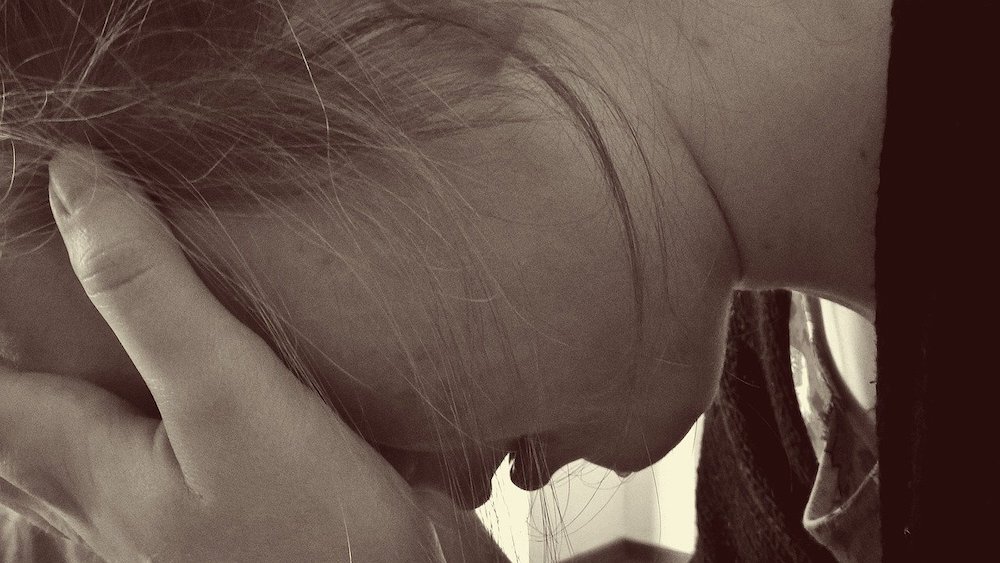The Ones Left Behind
The suicide rates have skyrocketed in the last year. Rates of suicide in the US have increased by 30% since 1999. The current suicide rate among teens during the COVID 19 pandemic is difficult to estimate. The age-adjusted suicide rate in 2018 was 14.2 per 100,000. The National Center for Health Statistics found the suicide death rate among persons 10-24 increased 56% from 2007-2017. Each person who dies by suicide leaves behind on average six suicide survivors-these are those close friends and family who have lost someone they loved and are left grieving and struggling to understand. The grief process is difficult for everyone. For survivors of suicide loss grief is complex and traumatic. Read on for more about suicide survival – the ones left behind | Dr. Victoria Smithers.
Today we will be discussing the following:
- Suicide Survival – The Ones Left Behind
- Suicide Grief
- 6 Stages of Grief
- Suicide Survivor Guilt and Anger
- How Long Does Grief Last?
- Suicide Counseling and Support Groups
- Seek Help for Depression
- How to Cope with Suicide of a Loved One
- Survivors May Never Know Why
- Guilt is Anger Turned Inward
- Everyone Heals Differently
- Period of Observation or Thoughts about the Past
- How To Help Someone Dealing with Loss
- Helpful Resources for Suicide Survivors
Suicide Grief
The initial reaction is often shock. The survivors are confused and overwhelmed. They will often move quickly into denial. It can be difficult to share the loss with others. Some people feel shame or guilt. They often move quickly into denial or blame. And this often leads to depression. These are similar to the traditional stages of grief.
6 Stages of Grief
- Shock
- Denial
- Guilt
- Sadness
- Anger
- Acceptance
Suicide Survivor Guilt and Anger
The loss experienced by survivors of suicide is unique and often unexpected. The survivor often feels intense guilt that they should have known or could have done something to prevent the suicide. The survivor of loss may experience blame, judgement or exclusion after a suicide. They can become very angry at the deceased. The survivor is in a major conflict because they are angry with the person they love and it can lead to a real disconnect from their memories. As Christians we need to remember to avoid making insensitive statements like “ He is in a better place” or judging the actions of the deceased.
Read on for more about suicide survival – the ones left behind | Dr. Victoria Smithers.
How Long Does Grief Last?
There is no timeline for this type of grief and it can be very prolonged. It does help to confront the loss and the feelings and not refuse to ever talk about it. Survivors often say time cannot heal this wound but things do get easier over time for most people. Sadness can return out of the blue and there can be painful reminders like a song or a photograph. Friends and relatives may not offer the support you need and people may make insensitive remarks. Some will want to know all the details, offer their theories on why or put a guilt trip on you. Avoid this person.
Suicide Counseling and Support Groups
Survivors often have misplaced fears about what others will think if you disclose the +suicide. Friends can get tired of talking about the suicide and get mad if survivor brings up the death again. This is where a good support group or professional counseling can help the survivor of suicide loss sort through these chaotic emotions. Some churches have grief support classes and prayer from church family can be very valuable. Pastoral counseling can be a tremendous help if you are struggling. If you do not have a relationship with the Lord I encourage you to seek him now. His love at this time is critical. Read on for more about suicide survival – the ones left behind | Dr. Victoria Smithers.
Seek Help for Depression
Life keeps moving forward. The first year is often the most difficult. You often feel lost, empty and alone. Getting through the holidays, birthday and anniversary can be very rough. As time passes, the survivor might be enjoying the weather or laughing with a friend and suddenly feel a wave of guilt. New milestones like weddings and births can bring on sadness or sometimes it triggers guilt that we are trying to move on without the loved one. You may even entertain thoughts of suicide. These are all common feelings. It is important for family members and survivors to recognize the symptoms of depression and seek care from a medical professional if they occur. Things that can help are listening to music, getting a massage, taking a walk or exercising, working in the garden, prayer, reading scripture, talking to a wise person about issues that keep bothering you and consider joining a support group for survivors of suicide loss.
How to Cope with Suicide of a Loved One
Suicide loss survivors will need to process the loss. They may need to hear the details of the death more than once and ask questions. They will need to talk about the loss and they will need to cry. Other times they just need to sit with someone and be held. They often revisit the question “Why?”. We can never fully answer this question. Most of the time it is multiple things that just build up and the person does not have the skills to cope with them all. Often the loved one had emotional illness, prior suicide attempts, morbid thoughts, a distorted view of the world, hypersensitivity to pain, and a need for control. It helps to understand, ”The primary goal of suicide is not to end life, but to end pain. “
Read on for more about suicide survival – the ones left behind | Dr. Victoria Smithers
Survivors May Never Know Why
Survivors may never get the explanation for the loss and this is what makes suicide so difficult. Letting go of the why is a big step toward acceptance. There are some common themes though.
- The logical suicide- A sudden tragedy like a terminal illness, loss of job can lead to suicide
- The suitcase- Pain had accumulated over time and they had emotional illness
- The holocaust victim- Sometimes years after a traumatic event they commit suicide
- The vengeful survivor-a survivor of suicide can’t cope and commits suicide
Again, counseling can really help us process all of these questions and deal with the survivors guilt. Guilt is the survivors worse enemy.
If you would like to know the love of God in a personal way, we invite you watch the GREAT NEWS FOR YOU Video on this page. May God bless you.and keep you.
Guilt is Anger Turned Inward
Guilt is the biggest stumbling block to healing from this loss. It is anger turned inward. The survivor has to learn that they are not responsible for their loved one’s suicide in any way. The “if only…” or “ I should have known…” thoughts are so damaging. The truth is that only the victim is responsible for suicide. Although that choice was often made by a clouded mind suffering from emotional turmoil. Parents often have a unique form of guilt over some perceived mistake in raising their children or regrets. Thoughts like “What did I do wrong…?” or “If we hadn’t gotten divorced maybe…” plague parents. Spouses can feel abandoned and have intense guilt when blamed by others. Siblings can have a very difficult time as well. Parents sometimes have a hard time communicating and siblings have a harder time understanding the why. It is so important for them to share openly and get a lot of support. Suicide Survival – The Ones Left Behind | Dr. Victoria Smithers
Everyone Heals Differently
Keep in mind that survivors do not heal at the same pace or in the same way. They have to be patient with each other because what works for one does not necessarily work for another. One survivor may have a difficult time even hearing their loved ones’ name, while another will enjoy hearing peoples’ memories and stories about the deceased. One will rely on support groups and counselors while another leans on very close friends who provide tons of support. Some survivors cannot come to terms with their loss, it is just too painful. I think that is why lots of marriages fall apart after the death of a child, suicide or otherwise. The death of a loved one to suicide affects everyone differently and their healing looks different. You have to make a decision to not allow their death to ruin another life and support each other with love and understanding.
Period of Observation or Thoughts about the Past
Many survivors later enter into a period of observation; they think about the past. They sift through the feelings and past experiences. Survivors are able to look at the good and bad in their relationship with the person who has taken his or her life. They can examine their feelings of guilt. They can also begin to redirect the anger they continue to feel. Survivors can also start to see the destructive patterns in their life. This period of observation allows the survivor to begin to ask what can be learned from this experience that can give energy toward a new shape for life. This observation phase gives a way to a turning point. The survivor realizes that their life has changed forever. As they travel the journey of grief, they realize that they have to change too, this is how they find a way forward to a period of reconstruction or picking up the pieces. Here is where the survivor starts to take action that allows them to check out what is and what isn’t going to work for them as they design a new plan for their lives. They begin to make long-term changes. They set out to make a life that both honors the past and has new meaning; by attempting to learn a new skill, working with a life coach, avoiding things that remind you of a painful past and experimenting with things you might like to do. Suicide Survival – The Ones Left Behind | Dr. Victoria Smither
How To Help Someone Dealing with Loss
Friends and family can help by staying close, expressing concern, pitching in with practical tasks, and listening to whatever the survivor wants to say. Stay close. Families often feel stigmatized and cut off after suicide. Avoid hollow reassurances. Don’t ask for an explanation. Just listen and be supportive. Remember the loved ones life and share memories and stories. It is important to be there for the long-haul. Send a card or reach out at anniversaries and holidays. Keep them in regular prayer over the first year and touch base with the person regularly.
Though you have made me see troubles, many and bitter, you will restore my life again; from the depths of the earth you will again bring me up.
(Psalm 71:20)
Helpful Resources for Suicide Survivors
Helpful resources for survivors of suicide loss are available at the American Foundation for Suicide Prevention, Compassionate Friends and American Association of Suicidology. Helpful books include No Time to Say Goodbye by Carla Fine, Why Suicide by Eustice Chesser, Healing After the Suicide of a Loved One by Ann Smolin and John Guinan, and Life after Suicide; A Ray of Hope for Those Left Behind by E Betsy Ross. I encourage anyone who is struggling after a suicide loss to seek out counseling, pastoral care, support groups and online groups to help you through this extremely difficult crisis. Lean on the Lord and he will hold you in his loving arms and guide you through this storm. He promises to never leave you.



